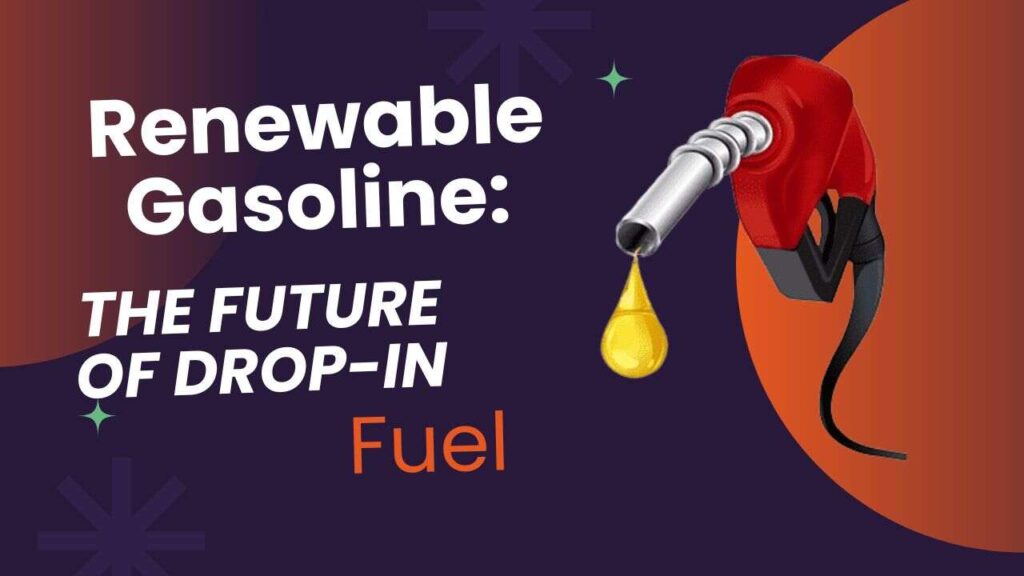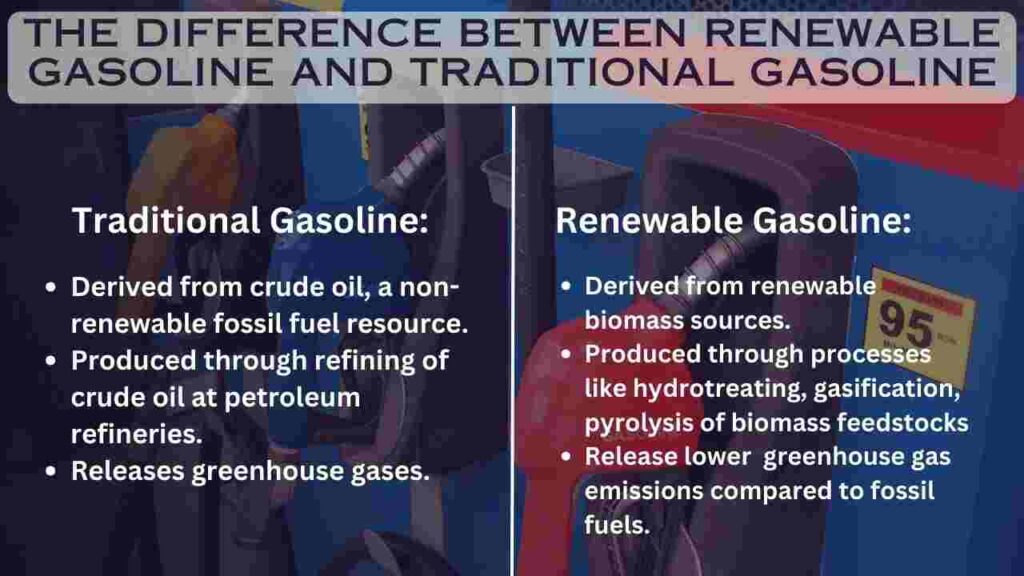
Table of Contents
What is renewable gasoline?
Renewable gasoline is also known as bio-gasoline or green gasoline. This is an alternative fuel produced from biomass sources through various chemical and thermal processes. These biomass sources can include agricultural waste, non-food crops, and organic waste materials.
The idea is to create a liquid fuel that can directly substitute or blend with conventional gasoline without the need for modifications in existing vehicles and fuel infrastructure.
How to produce renewable gasoline?
There are several methods to produce renewable gasoline:
- Fischer-Tropsch Synthesis: This process converts syngas (a mixture of carbon monoxide and hydrogen) derived from biomass into liquid hydrocarbons. It’s a versatile method that can produce various types of fuels, including gasoline.
- Pyrolysis: This involves the thermal decomposition of organic material at elevated temperatures in the absence of oxygen. Pyrolysis oil can be further upgraded to gasoline-like fuels.
- Hydroprocessing of Vegetable Oils and Animal Fats: Fats and oils are treated with hydrogen to remove oxygen and convert them into paraffinic hydrocarbons that can be blended into the gasoline pool.
- Alcohol to Gasoline (ATG): This method involves converting ethanol or methanol, which can be produced from biomass, into gasoline components through a series of chemical reactions.
The difference between renewable gasoline and traditional gasoline:

What are the benefits of using renewable gasoline?
- Reduced greenhouse gas emissions and improved air quality compared to fossil fuels.
- Renewable gasoline can significantly lower lifecycle CO2 emissions.
- Compatibility with existing vehicles and fueling infrastructure.
- Renewable gasoline is chemically identical to petroleum gasoline and can be used as a direct replacement in current engines without modifications.
- Increased energy security by reducing dependence on imported petroleum.
- Renewable gasoline can be produced domestically from renewable biomass feedstocks.
- Economic development and job creation in the renewable fuels industry, including in manufacturing, technology innovation, and implementation of new fuel technologies.
- Potential waste reduction by producing renewable gasoline from waste materials like used cooking oil, animal fats, and municipal waste.
- This promotes a more circular economy.
- Diversification of transportation energy sources and reduced risk of price volatility in the global oil market by increasing the use of domestically produced renewable fuels.
How is renewable fuel produced?
It can be produced from various biomass sources, including vegetable oils, animal fats, crop residues, and dedicated energy crops. Production methods include hydrotreating, gasification, pyrolysis, and catalytic conversion of sugars.
Can renewable-gasoline be used in existing vehicles?
Yes, renewable gasoline is compatible with existing engines and infrastructure, allowing it to be used in vehicles without any modifications.
What are the environmental benefits of renewable energy?
Renewable gasoline can reduce greenhouse gas emissions because the carbon dioxide released during combustion is balanced by the carbon dioxide absorbed by the feedstocks during their growth.
What are some examples of feedstocks used for renewable-gasoline?
Common feedstocks include lipids (like vegetable oils and animal fats), cellulosic materials (such as crop residues and woody biomass), and algae.
How does renewable fuel contribute to energy security?
By being produced domestically from various feedstocks, renewable gasoline can help reduce dependency on imported fossil fuels and create jobs in the renewable energy sector.
What are the challenges associated with producing renewable fuel?
Challenges include scaling up production technologies, ensuring consistent quality, and competing with established fossil fuel markets.
How does renewable-gasoline compare to other renewable fuels?
Unlike biofuels like ethanol or biodiesel which may require engine modifications or special infrastructure, renewable gasoline can directly replace petroleum gasoline without changes to existing systems.
What is the future outlook for renewable-gasoline?
With ongoing research and development in production technologies and increasing demand for sustainable fuels, renewable gasoline has the potential to play a significant role in the transition to cleaner energy sources in transportation.
